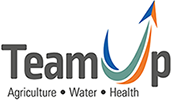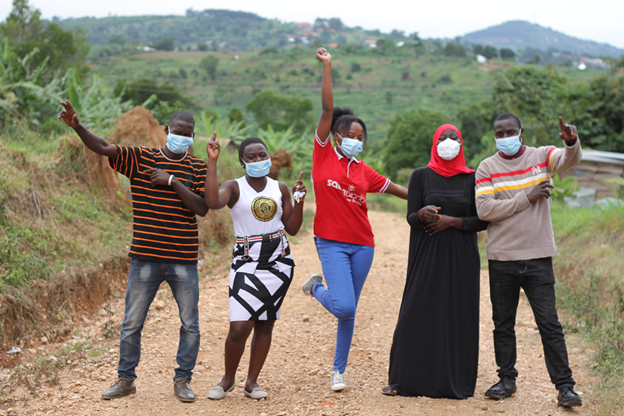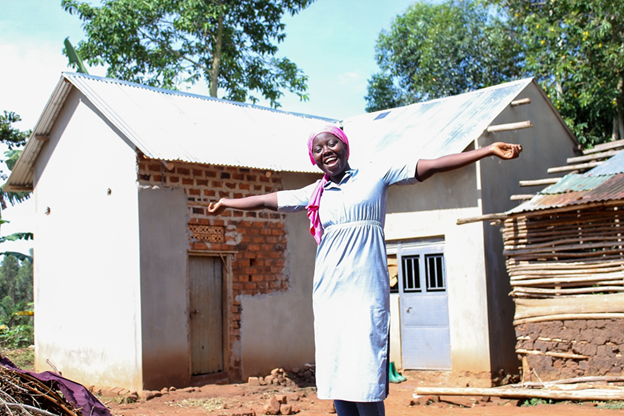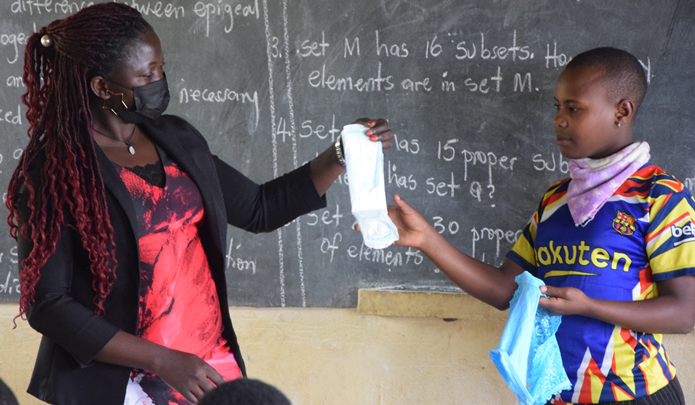
The Practicalities of Implementing Menstrual Hygiene Management in Schools after Covid-19
By Marion Musinguzi
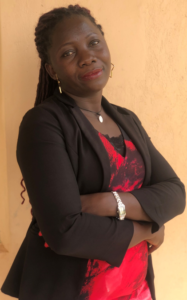
Noeline is a Project Officer with Action 4 Health Uganda under TeamUp for the Sexual and Reproductive Health and Rights (SRHR) In-School Program. Born in Kabira sub-county, Kyanika Parish in Kyotera District, Central Uganda, she is the 10th of 12 children.
At 34 years old, Noeline has two biological sons with her husband, has mothered and continues to mother more than her fair share of nieces and nephews. Coming from a large family like that stretched the available resources and time with the parents. As a result, Noeline determined that she would make room for herself in her big family.
When they say ‘it takes a village to raise a child’, Noeline has taken this to heart and become that village for several young people. While at University in Kampala, Noeline became drawn to peer groups that trained her with proper sexual reproductive health and rights (SRHR) information before sending her out to the University community to share with her peers.
It was therefore not uncommon to find her surrounded by groups of young men and women with whom she spoke about HIV, unwanted pregnancy, and STIs. This propelled her into her career as an SRHR expert. She made up her mind to give youth correct information before they get in trouble as young adults. She became their gatekeeper to SRH information in a community where the topic is still taboo and frowned on. It is easy to see why the students are drawn to her, and her nieces and nephews confide in her. There is no awkwardness in the air as she explains to both the boys and girls about Menstrual Hygiene Management (MHM). Her passion and clarity of speech as she facilitates the students with information on My body, My choices, My responsibility. The boys look her straight in the eye as they discuss MHM and eagerly answer the questions she poses without fear or shame of engaging. You can see that this has been Noeline’s labour of love as she encourages them to participate boldly and confidently.
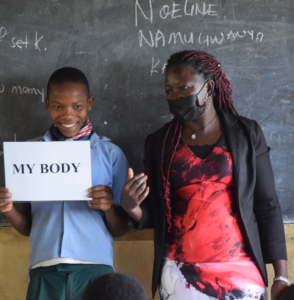
Her late father taught her to respect herself and create change in her community. She credits her mother for the woman she is today. She always encouraged her and pushed her to appreciate the importance of education even though she hadn’t been able to go far with her education. Noeline talks about one of the biggest challenges: the mindset towards Menstrual Hygiene Management (MHM) and sexuality education. She says that when you allow people to hear the correct information enough times, even when in doubt, they will come around. She now conducts SRHR sessions in over 60 schools.
COVID-19 revealed the urgency of the nature of her work in tackling the high teenage pregnancy rates in Uganda. There was much pushback in the beginning when community leaders and elders thought that SRH was vulgar, taboo and culturally inappropriate a topic to be dealt with publicly. However, this didn’t phase her one bit. She was open to them with the right SRH information and waited it out. Talking to fathers about MHM has been a massive milestone because now they can pay attention to their daughters’ MHM needs without shying away from the topic.
While the schools were closed during COVID-19 lockdowns, even though her work was essential, Noeline was unable to access the students like she used to, but she is hopeful that now that the students are back in school, she can resume the vital work of SRH information for the young people. Her advice to young women and girls is to have dreams and goals that drive them and guide them through their lives. Be a leader where you are. Be confident in whatever role you play and in your ability to achieve better for yourself.
